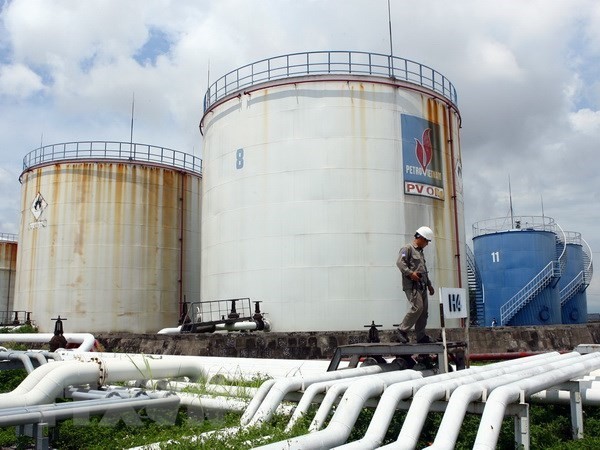 |
| Vietnam needs funds to increase national petroleum reserve |
The ministry proposed the national petroleum reserve be raised from nine days of net import to 15 days and 30 days in the 2026-30 period.
Accordingly, it was estimated that Vietnam would need around 4.1 trillion VND (173.7 million USD) per year to increase the national petroleum reserve.
Minister of Industry and Trade Nguyen Hong Dien said that the biggest obstacle was finding funds for the increase.
The storage must be enough for around 4-6 months of consumption to be able to cope with unusual situations in the global markets and avoid supply disruptions.
The Ministry of Finance, however, said that the sum was beyond the ability of the State budget. Currently, the State budget could arrange around 1.5 trillion VND per year for the national total reserves, meaning that it only met a third of the needed amount.
Dien said that each year, the State should arrange an additional sum of around 1-2 trillion VND, equivalent to 1-2 days of net import to increase the national petroleum reserve to 15 days of net import to 2025.
The ministry’s statistics showed that last year the total petroleum supply was nearly 25.58 million cubic metres, including 8.87 million cubic metres from imports, and 15.69 million cubic metres from local refineries.
In 2023, the ministry asked that the total petroleum supply should be 27.34 million cubic metres, 15% higher than last year, in which imports would still account for a large proportion.
Despite being a strategic product that plays an important role in ensuring energy security, the low reserve is one of the problems affecting fuel supplywhen unusual situations occur.
2022 was a difficult year for the global petrol and oil market due to the Russia – Ukraine conflict which caused disruptions and supply scarcity, pushing up prices and causing risks to enterprises.
Another problem is the shortage of infrastructure for the storage of petroleum. Currently, petroleum from the national reserve is being stored at more than 20 sites of major petrol wholesalers, triggering concerns that it would lead to a lack of transparency.
The Ministry of Industry and Trade admitted that it was difficult to separate the national petroleum reserve from the reserve of enterprises because the State did not have the infrastructure for petroleum reserves and must rent from enterprises.
The lack of infrastructure for petroleum reserves must be tackled in the long term, the Ministry of Industry and Trade said. However, in the short-term, renting storage units of enterprises must continue to avoid disruption and there should be mechanisms to increase transparency./.





















































